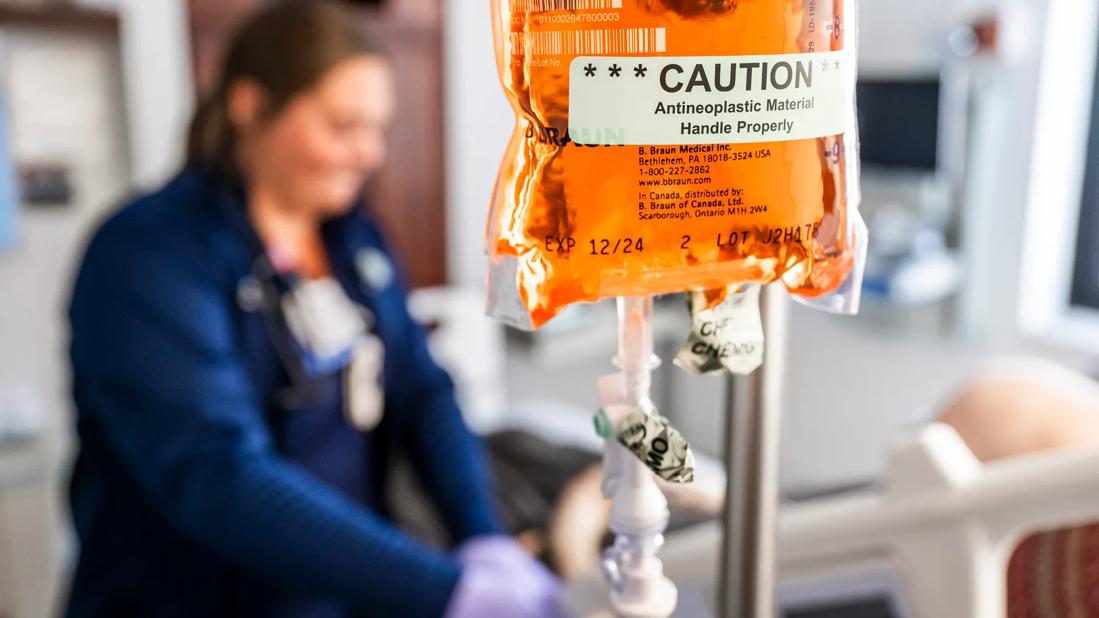Novel regimen may help overcome the shortcomings of traditional chemotherapy in geriatric population

A new treatment regimen may improve outcomes for older patients with Philadelphia chromosome-positive (Ph+) acute lymphoblastic leukemia (ALL), many of whom are poor candidates for intensive chemotherapy treatment. According to a study led by Cleveland Clinic oncologist Anjali S. Advani, MD, combination treatment with dasatinib, blinatumomab and prednisone appears to provide distinct advantages to the geriatric population.
Advertisement
Cleveland Clinic is a non-profit academic medical center. Advertising on our site helps support our mission. We do not endorse non-Cleveland Clinic products or services. Policy
“The results of this trial may improve outcomes for older patients with Ph+ ALL by allowing us to deliver a tolerable but highly efficacious regimen,” explains Dr. Advani, Director of the Inpatient Leukemia Program at Taussig Cancer Institute. Results from the study were presented at the American Society for Hematology Annual Meeting in December 2021.
Although many patients with the Ph+ form of ALL are treated with intensive chemotherapy, older patients cannot tolerate the side effects of intensive chemotherapy and are instead treated with a combination of tyrosine kinase inhibitors (TKIs) and corticosteroids. These low-intensity treatments are effective for putting ALL into remission, but they have been less effective in increasing the length of time patients remain alive and cancer-free.
Recognizing that better treatment approaches are needed for this vulnerable population, Dr. Advani and her team launched a phase II clinical trial in 2015 of older patients with Ph+ ALL. Study participants were treating using a new drug regimen that included the addition of blinatumomab to dasatinib (a TKI) and prednisone (a corticosteroid).
The trial enrolled 24 patients with Ph+ ALL. One additional patient with Ph-like ALL with genetic changes that are sensitive to dasatinib treatment was also enrolled. All patients were 65 years or older, had no evidence of central nervous system disease, and had adequate organ function.
Research participants received initial induction therapy with dasatinib and prednisone. Patients whose ALL went into complete remission received post-remission therapy with blinatumomab and dasatinib. If their ALL remained in complete remission, these patients eventually moved to long-term maintenance therapy with dasatinib and prednisone.
Advertisement
Patients who did not achieve complete remission after initial induction therapy received one or two additional courses of blinatumomab. If their ALL then went into complete remission, they moved to post-remission therapy; patients whose disease remained in complete remission were eventually moved to long-term maintenance therapy.
Ninety-two percent of study subjects experienced complete remission during induction therapy. Of these 23 patients, 16 were assessed for minimal residual disease (MRD) at treatment day 28, and five of these 16 patients (31%) showed no evidence of MRD.
With a median time in follow-up for trial patients who are still alive at 1.7 years, researchers have estimated a three-year disease-free survival rate of 80% and a three-year overall survival rate of 85% for patients enrolled to the study.
“Estimated disease-free survival is improved in older patients who received combination therapy compared to those who were treated with dasatinib and steroids alone,” says Dr. Advani. “Although further follow up is needed to determine the durability of these results, our study results are encouraging.”
Advertisement
Advertisement

Combining advanced imaging with targeted therapy in prostate cancer and neuroendocrine tumors

Early results show strong clinical benefit rates

The shifting role of cell therapy and steroids in the relapsed/refractory setting

Radiation therapy helped shrink hand nodules and improve functionality

Standard of care is linked to better outcomes, but disease recurrence and other risk factors often drive alternative approaches

Phase 1 study demonstrates immune response in three quarters of patients with triple-negative breast cancer

Multidisciplinary teams bring pathological and clinical expertise

Genetic variants exist irrespective of family history or other contributing factors